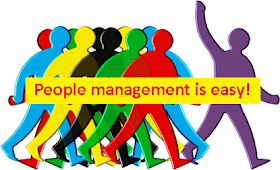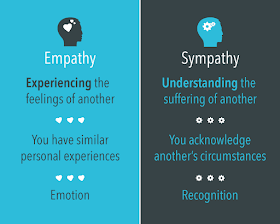Transform
Yourself
Most of the successful people become successful after the great life transformations. It is not a skill, not a step-by-step process to follow. It's unknown, until it becomes known.
If you examine carefully, every single great change in your life happens through transformations. Keep reading, to understand more about human transformation and how that gets you a great success.
What is human transformation? How does it occur?
It’s a realization of something at some point of time, that changes you completely, with no reset option. Like a piece of cloth turning into a shirt, it can’t be turned back into the same piece of cloth again.
Here are the examples which explains how effective those human transformations are -
- Mahatma Gandhi: When Mahatma Gandhi was thrown out of train by Britishers, they
never realised that in 20 seconds they are creating one great leader in
India who can throw Britishers out. After 20 seconds Gandhi became a new
person, he realized and transformed completely, became a freedom fighter
of India, with his transformation and self-realization.
- Parental guidance on
rash or over speed riding: Parents are guiding
their teenagers on over speeding of bikes, they don’t listen to them. Now,
if they see a speedy bike meeting with an accident, body cut parts, blood
spill over etc, suddenly he will realize how dangerous speeding is!!! By
watching that, suddenly teenagers become transformed and this teaching
can't be taught by any teachers or parents. Its true realizations of
transformation.
- Pick packet enlightenment: many times many of your parents and friends guide you about money
wallet safety and keeping it secure. You were not that serious about their
guidelines. Assume, in the metro train or public bus, someone steals your
money wallet. With that incident you get all the shock, pressure and
insecurities. That will teach you a lesson, no book or teacher can teach
that. From that incident you get transformed and stay alert about your
wallet.
How to recognize the transformation trigger?
It's easy, look at every big problem you get in your life. Look at every insult or humiliation you have received in your life. After that you would have taken bigger decisions that have transformed you as a new person. All problems, insults and humiliations are the possible starting point for human transformation.
Example 1: your
close friend creates big loss or damage to you or your carrier. It's an
indication to understand nothing is trustable or it gives more understanding of
Baja Govidam By
Sri Adi Sankaracharya. [YouTubeLink]
Most of the life events under critical situations trigger transformational possibilities in you. If you are asleep you stay where you are, if you are awake, that brings new understandings of life.
Example 2: when you lose important information or material or person. Initially it may create great insecurity, stress, tension in you, later you will realize. Nothing is stable and permanent. It's another kind of transformation. It makes you stronger and wiser.
If you are getting more and more problems is an indication that you are transforming more and more regularly. Remember, this applies only when you consider every problem is new learning and beginning. If you are yelling at the problem, not learning lessons from problems. There are no transformation possibilities to you.
How to be transformed without facing any problems or insults?
Yes, most of the great transformations are happening as a result of problems and insults. Still there is a way. Where you can get transformed without facing any problems.
That is reading books; fiction, self-help guides, quotes and autobiographies. Attending motivational sessions. By consistent involvement of study and lectures, you have transformation possibilities. You never know which book, which page and which line triggers you and brings great realizations and life transformation in you.
Story of Medical Student:
Here is a story of
a medical student, who enjoyed a complete year with friends and parties. He
realized that there was no meaning in taking the final examination. In his hostel
room he packed all his clothes, book, and bed ready to go home by skipping
education.
Before he moved. He
thought of having one coffee, he visited the canteen; he noticed a quote on the
wall: which says instead of thinking what has gone, think about what you have and what
you can do! That quote triggered him and he came back to the room and
checked the calendar, still he has 21 days to the final examination date. He
unpacked things and started studying day and night, involved so deeply and took
the final exam.
On the results day
he knew that he definitely passed that example, but final exam results were
astonishing, he achieved 1st Rank! One single quote transformed him completely.
That is why reading books or listening to motivational speeches bring great
transformation in you.
Story of Tarun Sagar:
Tarun
Sagar childhood he liked the sweet Jalebi the most. In childhood
once going on road he listened to the voice "tum bhi bhagwan ban sakte
ho" meaning 'you can also become God'. This was the voice of Digambar Jain
monk Pushpdant Sagarji. After hearing these words, Muni Tarun Sagar ji left his
home. Become a great Monk. The Jain religion community treated him almost like
a God. One line of speech Transformed Tarun Sagar from normal human to a great
Monk.
So, you never know what will trigger you and transform you as a new person, keep reading books and keep listening to motivational speeches!
Kereya neeranu Kerege chelli
Author Disclaimer:
I’m not a robot to be constant,
consistent and complete, I’m a normal human and my blog will be contradictory
like director give multiple movies have different opinions on the same subject
or different subjects. I flow like a river, I really don’t look for sand, rock,
trees, house, and so on. Intention is helping as many as possible before
reaching the ocean. I strongly recommend to consult expert’s advice to follow
and adopt any methods. The intent of the author is only to offer information of
a general nature to help you in your quest for emotional and spiritual
well-being.













